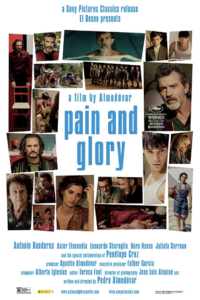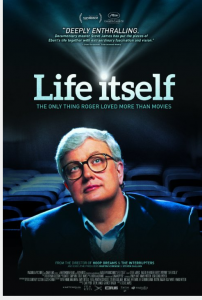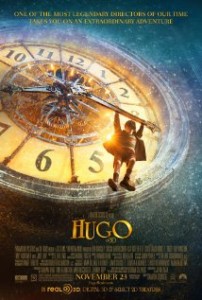October 14th, 2019 — 1:10am
***
Pain and Glory-rm
 The main character of this movie is a film director Salvador Mallo (Antonio Banderas) who appears to be an aging man with various physical conditions but is still under the influence of his childhood memories and experiences. He has recently learned that an earlier very successful movie that he made is going to be restored and he is invited to present it with the lead actor, Alberto Crespo (Asier Etxeandia) whom he hasn’t spoken to for 32 years since the film was originally made. The director was angry at the actor because he didn’t play his role the way the director had envisioned it. This scenario becomes a vehicle for the main character to relive and examine his childhood and early years which included his relationship with his mother (Penelope Cruz) as well as his attraction to heroin. His earlier sexual experiences with a man is also highlighted.
The main character of this movie is a film director Salvador Mallo (Antonio Banderas) who appears to be an aging man with various physical conditions but is still under the influence of his childhood memories and experiences. He has recently learned that an earlier very successful movie that he made is going to be restored and he is invited to present it with the lead actor, Alberto Crespo (Asier Etxeandia) whom he hasn’t spoken to for 32 years since the film was originally made. The director was angry at the actor because he didn’t play his role the way the director had envisioned it. This scenario becomes a vehicle for the main character to relive and examine his childhood and early years which included his relationship with his mother (Penelope Cruz) as well as his attraction to heroin. His earlier sexual experiences with a man is also highlighted.
The movie is supposed to be semi autobiographical of the filmmaker Pedro Almodovar (whatever that means). While the movie shows meaningful childhood early life experiences and how it impacted the course of the character’s life in later years, we didn’t feel the storyline captured and held our interest. The movie was well-acted and produced, with topnotch acting and production. You forget that you are watching a film in Spanish and reading English subtitles. However, we still can’t give it a strong recommendation. (2019)
Leave any comments below
Comment » | 3 Stars, Drama
July 13th, 2014 — 6:26pm
****
Life Itself-rm– It feels somewhat strange for us amateur reviewers to be writing a review about a documentary film centered on the most esteemed movie critic of our time. But in our opinion it is an excellent film that we would guess would receive high marks from the master himself if he were still around. He died a few months before the film was ready for release. We meet Roger at point where he is battling the cancer that has already taken away his vocal speech and altered his face. His voice via his laptop is heard and is an important part of the film. In life, his voice at this point came from a computer voice synthesizer but in the film there is a voiceover by Steven Stanton who seems to capture the inflections of Ebert’s voice as we heard it at an earlier time. Director Steve James (in 1974 Director of Hoop Dreams which Ebert had named best picture of that year) skillfully weaves video clips and interviews with various people in Ebert’s life with a flashback technique in order reconstruct this remarkable story. It becomes a special treat for the viewer to meet some other great movie critics and directors as they comment on Ebert and his work throughout the film. Such people as A.O Scott from the N.Y. Times, Pauline Kael of the New Yorker, Richard Corliss of Time Magazine and Directors Weiner Herzog and Martin Scorsese. Ebert’s talent became clear in college when he proved his skill as a writer and was quickly elevated to editor at his college newspaper while at the University of Illinois as well as working for the city newspaper. He is depicted as confident, arrogant and brilliant. After college he then worked as general reporter for the Chicago Sun Times and then in 1967, 3 years after graduating from college he became the full time movie critic for the Chicago Times, a position he held for his entire career. In 1975 he teamed up with Gene Siskel, the movie critic of the other major newspaper in Chicago, in order to cohost a weekly film review television show that became immensely popular and ran until Siskel’s death in 1999. Their relationship is shown as a love-hate one where they pulled no punches on or off the air but obviously had great affection for each other. Ebert married at age 50 in 1992 to Chaz, an attorney who he met at an AA meeting. Yes, he apparently was a big drinker at the bars and saloons he hung out at early in his career. We don’t see much in the film about this aspect of his life. He stopped drinking in 1979 but apparently stayed connected with AA. He is shown to be very loving and committed to his wife, step daughter and step grandchildren. Ebert’s accomplishments as a writer and critic were heralded beyond any doubt when in 1975 he became the first movie critic to ever receive a Pulitzer Prize for his work. It would be 29 more years before such recognition was given to another film critic. In addition to this movie being about the life of Roger Ebert, it is also clearly about his dying and death. The Director Steve James started working with Ebert on this film 5 months before he died. The film shows his wife’s support as he battles his progressive disease with repeated hospitalizations. Chaz gives a very moving description of how he kept working on his film blog (obviously also this film) to the day before he died and how he finally decided to let go. In the spirit of writing this review we would have to say that we thought this pain and suffering was drawn out in the film longer than it had to be to make it’s point. But on the other hand we may feel that way because we really came to revere him and it was painful to see the end of the story. (2014)
Comment » | 4 Stars, Biography, Documentary
February 1st, 2012 — 4:32pm
****

Hugo –rm  _ The movie open with a beautiful scene of Paris with snow flakes falling. The 3D effect is fantastic. It actually almost feels as if the snow is falling on the audience. This is followed by a breathtaking run through the railroad station taking full advantage of the three dimensional technique that is being used. However, by the end of the film we concluded that we could have done without the 3D effect and the movie would have been just as good and the glasses were a tad uncomfortable anyway. This film has all the ingredients of a successful movie. First of all it has Martin Scorsese fully behind it as director and a producer. It is a movie about movies which almost always is an attraction to movie goers (and critics and award givers). It has appealing child actors (Asa Butterfield and Chloe Grace Moretz) and a delightful grandfather figure played by Ben Kinglsey. It also has Sacha Baron Cohen as the railway policeman who is the scary threat on one hand but a humorous injured soul on the other. Oh yes, there is also a dog – a big tough mean dog but any dog always seems to push up the positive rating meter especially for young people. There are moving moments when a young boy’s father dies and he is searching for a bond with his lost Dad. He meets a grandfather figure who can’t think about his own lost glorious past because it is too painful to contemplate. There is clash, suspense, action, resolution and a grand finale. While this certainly is a children’s movie probably for nine and ten year olds and older, it is also made for us adults who are not only young at heart but always want to learn a little history. The book by Brian Selznick and the screen play by John Logan is telling us the story of Georges Meilies who was a French illusionist and filmmaker who became very famous for many special techniques which he developed during the early days of cinema. He suffered a decline and tragic losses and was alienated from his earlier great successes. He ultimately became recognized and revered once again in his senior years. The real story of how this came about was not the fairy tale story, which is depicted in this movie, which is quite delightful and resonates with all our fantasies and sentimentality. The bonus treat here is that we also see lots or real footage of classic French movie clips, many by the real Georges Meilies. So when we toss our 3D glasses in the bin on the way out – the memory and the good feeling of the movie will stay with us. (2011)
Comment » | 4 Stars, Drama, Family / Kids
 The main character of this movie is a film director Salvador Mallo (Antonio Banderas) who appears to be an aging man with various physical conditions but is still under the influence of his childhood memories and experiences. He has recently learned that an earlier very successful movie that he made is going to be restored and he is invited to present it with the lead actor, Alberto Crespo (Asier Etxeandia) whom he hasn’t spoken to for 32 years since the film was originally made. The director was angry at the actor because he didn’t play his role the way the director had envisioned it. This scenario becomes a vehicle for the main character to relive and examine his childhood and early years which included his relationship with his mother (Penelope Cruz) as well as his attraction to heroin. His earlier sexual experiences with a man is also highlighted.
The main character of this movie is a film director Salvador Mallo (Antonio Banderas) who appears to be an aging man with various physical conditions but is still under the influence of his childhood memories and experiences. He has recently learned that an earlier very successful movie that he made is going to be restored and he is invited to present it with the lead actor, Alberto Crespo (Asier Etxeandia) whom he hasn’t spoken to for 32 years since the film was originally made. The director was angry at the actor because he didn’t play his role the way the director had envisioned it. This scenario becomes a vehicle for the main character to relive and examine his childhood and early years which included his relationship with his mother (Penelope Cruz) as well as his attraction to heroin. His earlier sexual experiences with a man is also highlighted.




